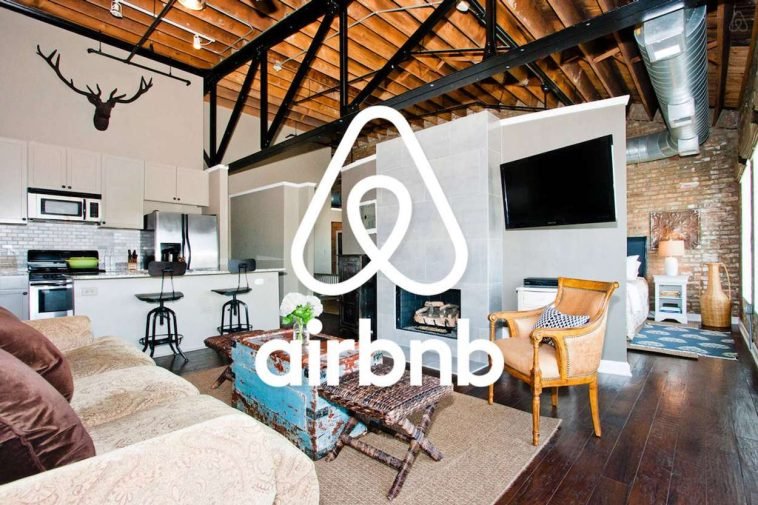Introduction.
Starting an Airbnb business can be an exciting journey, and creating a solid business plan can be the key to making it a success.
I have found that a well-thought-out plan not only guides your decisions but also builds your confidence as you set out on this venture.
This guide will help you understand the different parts of a business plan, provide useful tips, and answer some common questions along the way.
Why a Business Plan Matters
A clear business plan lays the groundwork for your Airbnb business. It helps you set realistic goals, understand your market, and plan your finances.
A good plan also serves as a reference point, especially when unexpected challenges arise.
For instance, if you know your target guest demographic and local market trends, you can make decisions that improve occupancy rates and boost revenue.
Having a detailed business plan can also help you secure funding or support if you need a loan or investors.
According to Statista, the vacation rental market is growing, with millions of guests booking Airbnb listings each year.
This shows that planning your business carefully can pay off in a competitive market. For more detailed statistics, you might check out resources like Statista or Airbnb’s press page.
The Basics of an Airbnb Business Plan
A comprehensive business plan for your Airbnb business should cover several key areas:
1. Business Description
Start by clearly describing your Airbnb business. What type of property do you offer? Is it a cozy apartment in the city or a spacious home in the countryside? Explain your unique selling points.
For example, if your property offers unique local experiences or high-end amenities, highlight that in your description.
This section should also outline your goals, such as increasing occupancy or expanding to multiple properties in the future.
2. Market Analysis
Understanding your market is essential. Look at local trends and study your competition. Ask yourself these questions:
- Who are my potential guests?
- What are their needs and preferences?
- What are my competitors doing, and how can I offer something different?
Tools like Google Trends and local tourism reports can offer insights into travel patterns and guest behavior. You might also find local tourism boards’ websites helpful for more in-depth research.
3. Financial Planning
Financial planning is a critical part of your business plan. Start by outlining your startup costs, such as furnishing your property, obtaining necessary permits, and marketing expenses. Then, project your monthly costs and expected income.
It’s a good idea to prepare for slow periods by having a financial cushion. For guidance, resources like the U.S. Small Business Administration provide templates and tips on financial planning.
I like to use simple spreadsheets to track expenses and income. This not only gives you a clear picture of your financial health but also makes it easier to adjust your strategies as needed.
4. Operations Strategy
Your operations strategy should cover how you plan to run your Airbnb business day to day. Consider the following:
- Guest Communication: How will you communicate with guests? Will you use automated messaging tools or handle messages personally?
- Housekeeping: Will you hire a cleaning service, or will you manage it yourself?
- Maintenance: Regular upkeep of your property is crucial. Plan for routine inspections and set aside a budget for repairs.
Having a solid operations plan ensures that guests have a positive experience, which can lead to good reviews and repeat bookings.
5. Marketing and Sales
Even the best Airbnb business needs a strong marketing strategy. Think about how you will reach potential guests. Some ideas include:
- Social Media: Use platforms like Instagram and Facebook to showcase your property with appealing photos and guest testimonials.
- Local Partnerships: Collaborate with local businesses or tourism boards. Sometimes, partnerships can lead to guest referrals.
- Online Listings: Optimize your Airbnb listing with clear descriptions, high-quality images, and competitive pricing.
Consider setting aside a small budget for paid promotions if you feel it will give you an edge. Keeping track of guest feedback can also help you refine your marketing messages over time.
6. Future Goals and Growth
It’s important to think about where you want your Airbnb business to go. Maybe you plan to expand to additional properties or add unique guest experiences, such as guided tours.
Outlining your growth strategy can help you stay focused and motivated. This section of your business plan should include measurable goals and a timeline for achieving them.
Frequently Asked Questions (FAQs)
Do I need a business plan if I’m just renting out one property?
Yes. Even a simple business plan can help you understand your market and finances better. It provides a clear path to follow and helps in managing unexpected challenges.
How detailed should my financial plan be?
Your financial plan should include all potential costs and projected income. It does not need to be overly complex; clear estimates and a well-organized budget can make all the difference.
Where can I find help with writing my business plan?
There are many online resources available. Sites like SBA.gov offer free templates and guides that can be very helpful. Additionally, local small business support centers often provide workshops and one-on-one guidance.
Can I update my business plan over time?
Absolutely. A business plan is a living document. As your Airbnb business grows and the market changes, updating your plan can help you stay on track and adapt to new challenges.
Further Resources
Templates and Guides:
Visit the U.S. Small Business Administration website for free business plan templates and additional guidance on starting a small business.Local Support:
Look into local business development centers or small business associations in your area. They often offer workshops, networking opportunities, and one-on-one coaching.Online Courses:
Platforms like Coursera and Udemy offer courses on business planning and entrepreneurship. These courses can help you sharpen your skills and provide new ideas for growing your Airbnb business.Industry Insights:
For the latest trends and statistics, websites such as Statista and Airbnb’s newsroom are great places to start.
Wrapping Up
Creating a business plan for your Airbnb business might seem like a big task, but breaking it down into manageable parts can make it much more approachable.
I have learned that investing time in planning not only builds a strong foundation but also prepares you for unexpected challenges.
It makes your business more resilient and helps you see growth opportunities that might otherwise be missed.
Each section of your plan plays a role in ensuring that you understand your market, manage your finances, and create a great experience for your guests. uccess.
So, how do you plan to write your business plan for your Airbnb business?





GIPHY App Key not set. Please check settings